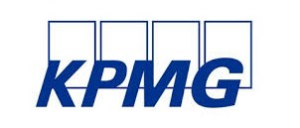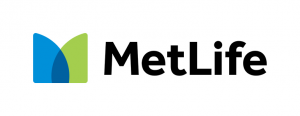After the exit, CNB to give CZK more room than previously expected
29.03.2017Company: Amcham
The upcoming CNB meeting is the last before the expiration of CNB’s pledge not to remove its FX commitment by the end of 1Q. However, the CNB is not expected to shed any more light on the timing of the end of the commitment. We assume that it will retain its guidance that the probable timing of the floor removal is mid-2017. We still believe that the bank board will only wait to announce its decision at its regular 4 May meeting. Nevertheless, we see a significant risk that the CNB will call an extraordinary monetary meeting to lift the floor already in April.
Inflation has accelerated rapidly at the turn of the year and it keeps surprising the CNB on the upside. The February reading showed 2.5% yoy growth in prices while the central bank expected only 2.1%. The surprise for the CNB was mainly due to the surge in food prices which hit all European countries. But unlike in other European economies, core inflation increased to the 2% level in the Czech Republic. The price growth is thus spread through different items in the consumer basket, which makes the acceleration of inflation more robust. Both our own and the forecast of the CNB expect that inflation will continue overshooting the 2% target on the monetary policy horizon (12-18 months). Thus, it seems that there is no impediment to remove the FX floor. The CNB does not have much space to change its guidance. Moving it forwards would only be a minor change in timing, which would attract another wave of speculative capital inflow – and meanwhile not many would trust the CNB if it decided to postpone the probable timing of its exit.
As the exit approaches the differences in the views of individual board members are also emerging. We believe that the new board members (those who joined the CNB after the appointment of Governor Rusnok) would prefer to remove the floor sooner rather than later while Vice-Governors Tomsik and Hampl have kept their dovish stance and stressed that the floor should remain past the middle of 2017. We also believe that the floor will be scrapped at the regular monetary policy meeting on 4 May. The bank board will have a fresh inflationary forecast at hand and while it is still in the second quarter of the year, it is close enough to the middle of the year that it can be interpreted to be in line with the current CNB guidance (around mid-2017). However, we see a significant risk that the floor will be scrapped already in April. The risk of an earlier exit was recently corroborated by remarks made by President Zeman. He said he met with Governor Rusnok and then subsequently declared that the exit might come earlier than most expect.
The timing of the exit is probably not the only issue where the bank board’s opinion is split. The February statement did not include the assurance that the “CNB will stand ready to intervene to mitigate exchange rate volatility” and the bank board (especially the new members) is now rather leaning towards letting the exchange rate find its new equilibrium without interference from the central bank. This does not mean that the CNB will allow any appreciation, but rather that the markets should certainly prepare for much higher volatility. However, the prevailing view of the board expressed in the minutes from the previous meeting was that “that there were sufficient factors preventing sharp appreciation of the koruna after the exit.” Again, we believe that the new members are behind this change.
The CNB also started stressing that it wants to normalise interest rates as soon as possible. If it so proves that the CZK is reluctant to appreciate after the exit, then the CNB has clearly stated that it is ready to provide its intended tightening through the hiking of interest rates. We do not change our call that the CNB will wait to make any hike until after it sees the effects of the floor removal. As we expect moderate appreciation after the exit, we believe that the CNB will start its hiking cycle as late as 2Q18. But if turns out that the CZK is reluctant to strengthen in the first few months after the exit, then the first hike may in fact occur this year.
The meeting on 30 March will not bring much change. The outcome will probably confirm that the bank board will give the CZK more freedom to find its own equilibrium after the exit. We also assume that the CNB will stress its intention to conduct its monetary policy though interest rates again. We see only a marginal risk of exit on tomorrow’s meeting.
Tags: Economics | Finance | Business Development |







